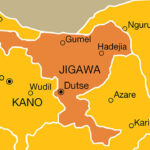The conference committee on environment chaired by Sen. Florence Ita-Giwa noted: “There is the vital need to preserve the integrity of the Nigerian environment and thus secure its sustainability for present and future generations requires clear and direct stipulations in the Nigerian Constitution.”
The committee was of the view that there must include justiciable rights to a safe and satisfactory (as stipulated by Article 24 of the African Charter on Peoples and Human Rights to which Nigeria is a signatory) environment, including the rights to water, clean air, food and shelter.
As a people living very closely to and depending for livelihoods on nature/environment we should enshrine the rights of nature to maintain its natural cycles without disruption in our constitution, the committee said, adding that Section 20 of the 1999 Constitution did not establish any legally enforceable code of environmental rights.
The committee, therefore, recommended that the Environmental Objectives of the State under Chapter II of the Constitution be transferred to the justiciable rights under the fundamental rights chapter of the constitution.
“This should be clear and without any ambiguity with respect to legislative power on the environment. Federating units should have the right to legislate while overall environmental protection can continue to be handled by NESREA and a needed Nigerian Environmental Health and Safety Agency.”
It noted that the Land Use Act has since its enactment generated a lot of controversy, saying it has taken away the land rights from local communities.
The committee recommended that the Land Use Act be removed from the constitution and amended.
The committee also noted that regular courts in the country were often inundated with a multitude of civil and criminal cases and recommended that special environmental courts be established in all the states.
The committee wanted the constitution to define waste beyond refuse, recommending the establishment of federal, state and council wastes.
“In consonance with this, federal wastes shall be wastes emanating from defence (explosive and disarmament wastes), nuclear operations (radioactive wastes), minerals resources and mining operation (mining wastes). State wastes include all hazardous wastes other than federal wastes, whereas Council wastes are essentially non hazardous (domestic and wastes from small businesses) and institutionally generated. The 4th Schedule of the Constitution should be changed to limit the powers of councils to non-hazardous wastes.”
The committees called for the creation of what should be known as ecological commission and include it in the concurrent list while contributions to the funds should be increased from present 3 per cent to, at least, 5 per cent and moved from the exclusive legislative list to the concurrent list.
“The Ecological Funds must not be used as political funds, but must be strictly monitored and used to mitigate impacts of natural disasters and to remediate or restore environments damaged by various forms of erosion as well as for strict sanitation and waste management, halt desertification and deforestation across the nation,” it added.
Mr. Anthony Ike, an environmentalist, said that the conference recommendations were good, noting that laws had never been the issue but their implementation.
“Their recommendations are fine but they should also make effort to look at the laws we have, the issue here should not be about new laws but how do we ensure that what we have are strictly implemented.”
 Join Daily Trust WhatsApp Community For Quick Access To News and Happenings Around You.
Join Daily Trust WhatsApp Community For Quick Access To News and Happenings Around You.


